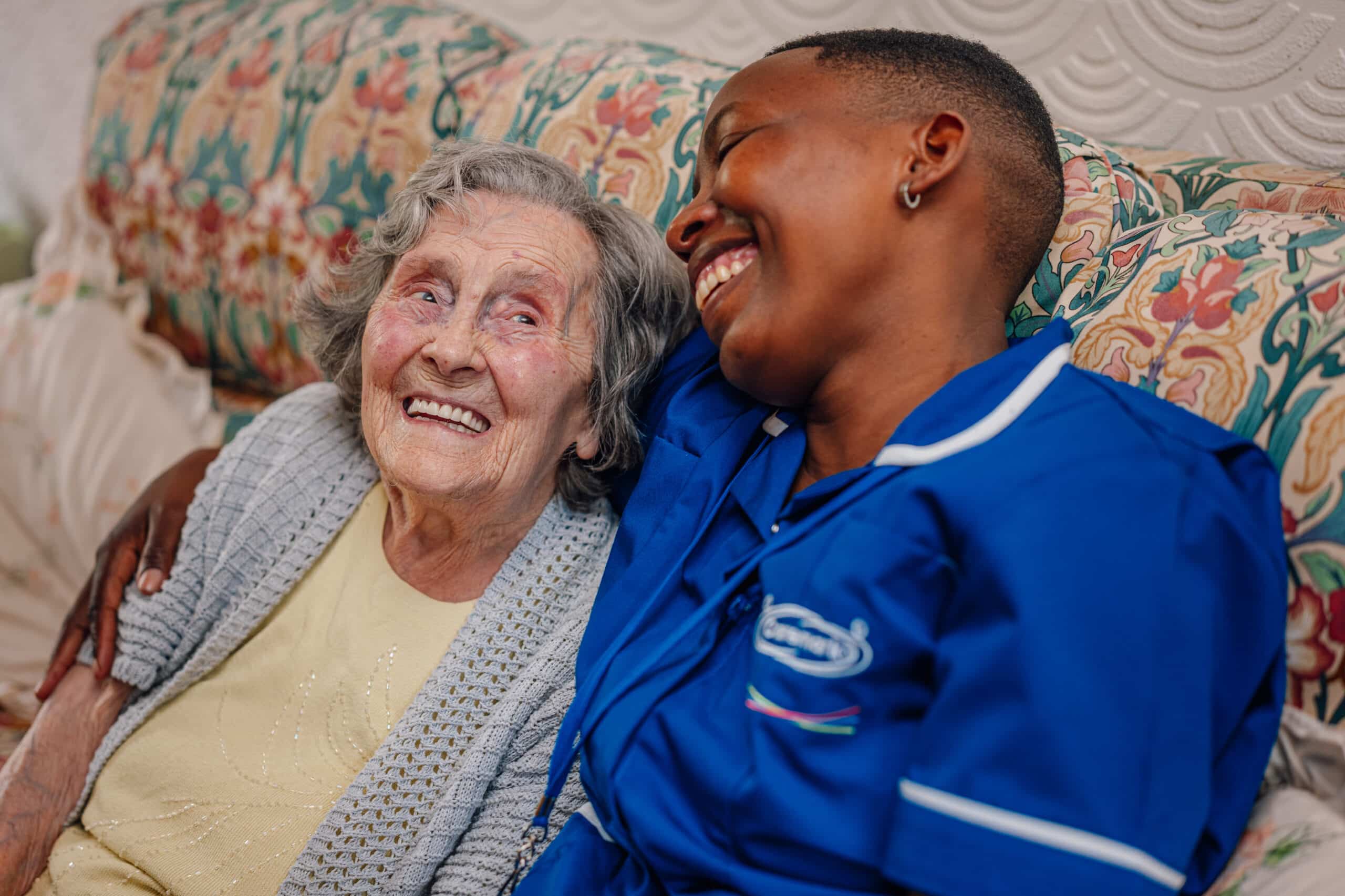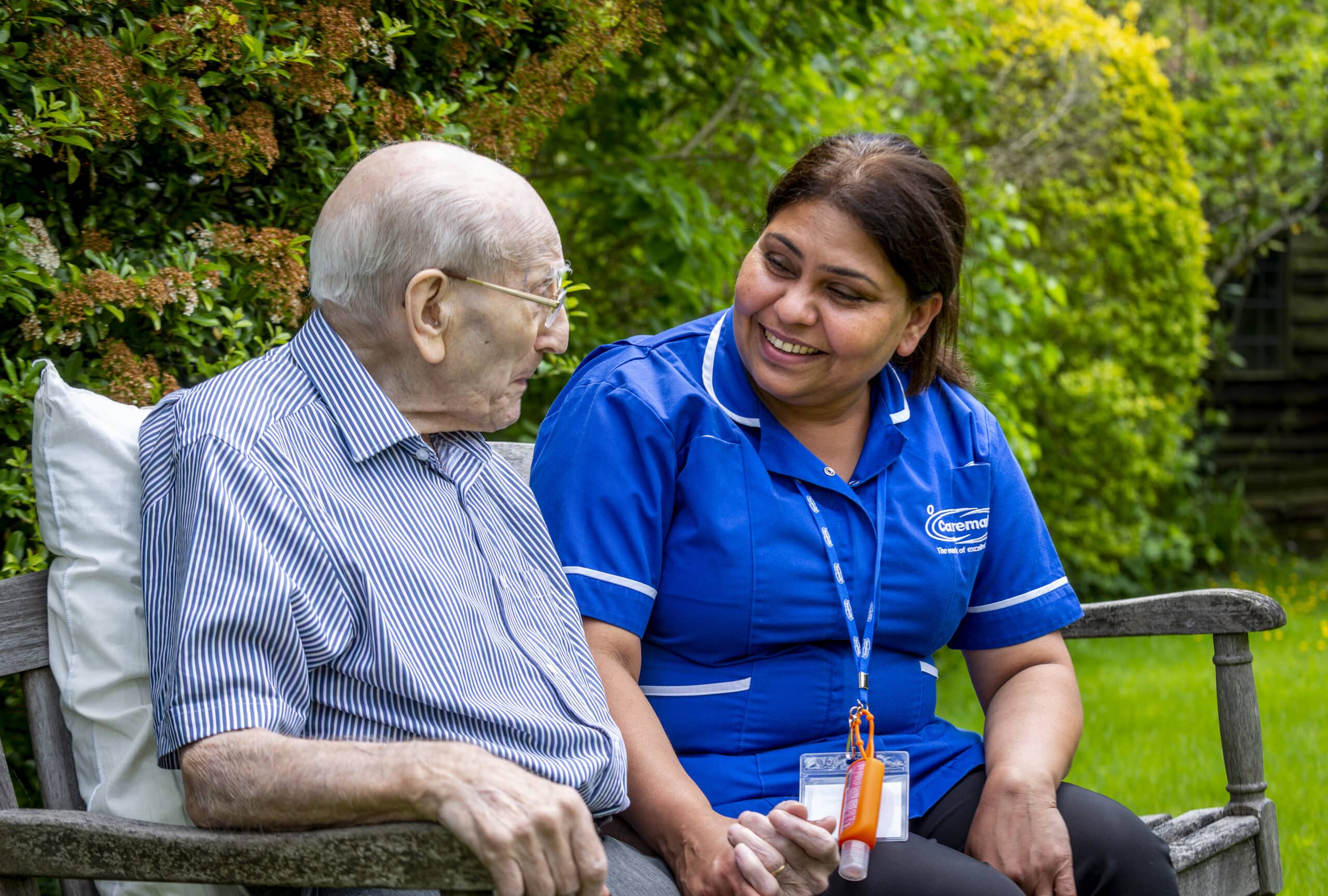The Power of Active Listening in Care

Loneliness is a growing concern across the UK. It is particularly prevalent among older adults and those receiving care at home. While practical support is essential, emotional connection is just as important. One of the most powerful tools a care assistant can use to combat loneliness is listening. It’s a simple yet transformative skill that can make a world of difference in someone’s life, hence the power of active listening in care.
What is Active Listening?
Active listening means giving someone your full attention. It’s not just about hearing their words, but truly understanding what they’re saying and how they feel. It involves being present in the moment and making the speaker feel heard and valued. In care, this also means listening to what a customer may be trying to express through tone or body language.
Why Active Listening Matters in Home Care
In home care, every interaction matters. Many customers may live alone or have limited social contact. For them, a care assistant might be the only person they speak to that day. That’s why the power of active listening in care is so important.
When care assistants practice active listening, they build trust and rapport. This helps customers feel less isolated and more connected to the world around them. It also allows carers to gain deeper insight into a person’s needs and preferences. This can lead to more personalised and effective care. Active listening can even help identify early signs of emotional or physical distress.

The Link Between Loneliness and Listening
Loneliness isn’t only about being alone; it’s about feeling unheard or unseen. Active listening helps bridge that emotional gap. When someone feels listened to, they feel connected. That connection can reduce feelings of isolation and improve mental health. It can also enhance general well-being.
In care settings, this emotional connection is as important as physical support. A short conversation, a shared memory, or a moment of silence can help an older adult feel valued and respected.
How to Practise Active Listening in Care
Care assistants can power active listening in small but meaningful ways:
- Be present: Focus on the customer, even during short visits.
- Use open-ended questions: Ask questions that invite more than a yes or no answer.
- Acknowledge feelings: Show empathy by recognising and validating emotions.
- Avoid distractions: Put away phones and other interruptions during conversations.
- Follow up: Reference previous conversations to show genuine interest and care.
These simple actions can turn everyday interactions into opportunities for connection and trust.
Overcoming Barriers to Active Listening
Even with the best intentions, there can be challenges related to listening well in a care environment. Discover some of the most common barriers and how to overcome them.
Time pressures
In home care, time is a common barrier, especially when care assistants have many visits in a day. However, even a few minutes of focused attention can make a lasting impact. A warm greeting, a thoughtful question, or a moment of shared laughter can transform a routine visit into something meaningful.
Distractions can also get in the way. It’s easy to become task-focused, especially when there’s a lot to do. But by pausing and tuning in to the customer, care assistants can create space for connection.
Emotional fatigue is another challenge. Caring is deeply emotional work, so care assistants must receive support, supervision, and time to reflect. This means that they can continue to offer compassionate, attentive care.

The Benefits of Active Listening in Care
When care assistants practise active listening, everyone benefits. Customers feel more in control of their care and more connected to those around them. Carers build stronger relationships, making their work more rewarding. Families gain peace of mind, knowing their loved one is cared for. And care providers see better outcomes, including improved mental health, satisfaction, and trust.
What Caremark Does to Support Active Listening
At Caremark, we understand that the power of active listening in home care is central to everything we do. Our care assistants are trained in empathy, communication, and emotional intelligence. We encourage every team member to take the time to listen because we know that’s where real care begins.
We also support our teams with regular training and a culture that values kindness and connection. Whether it’s a five-minute chat or a shared moment of silence, we know that listening changes lives.

What Caremark Can Do For You
At Caremark, we provide high-quality, professional care that helps individuals live empowered lives. Our kind, trustworthy care assistants are key to our tailored care. Our customers are at the heart of everything we do, so we want to support every one of their needs to manage their conditions.
Want to learn more about the care services we provide? Get in touch and discover how we can support you or someone you love. From companionship to dementia care, we are here to help.